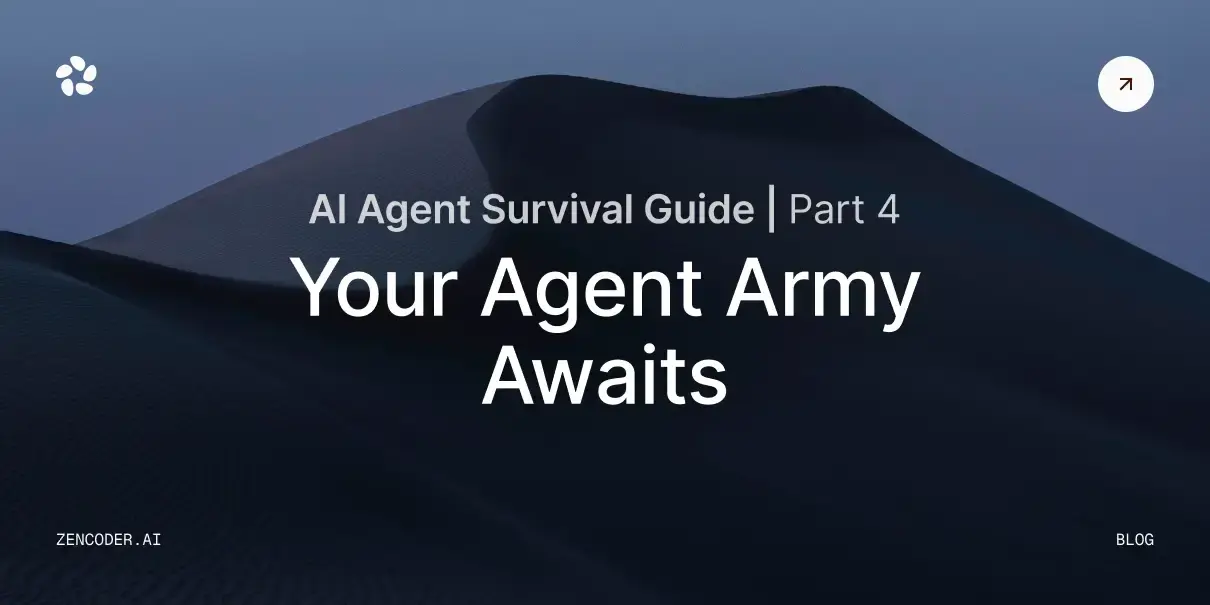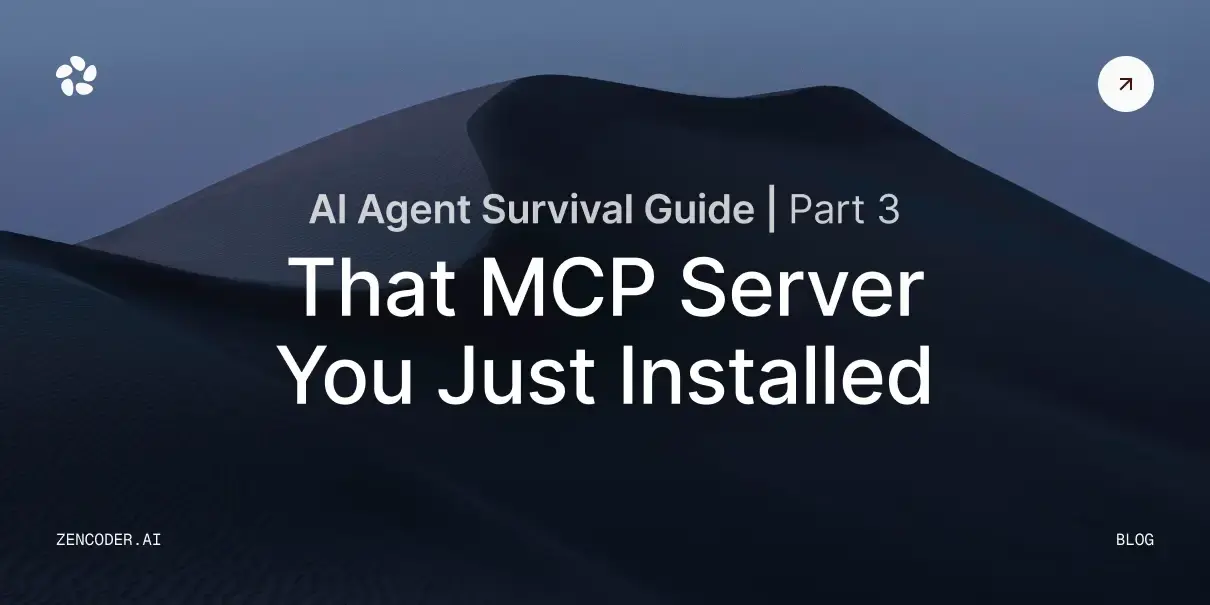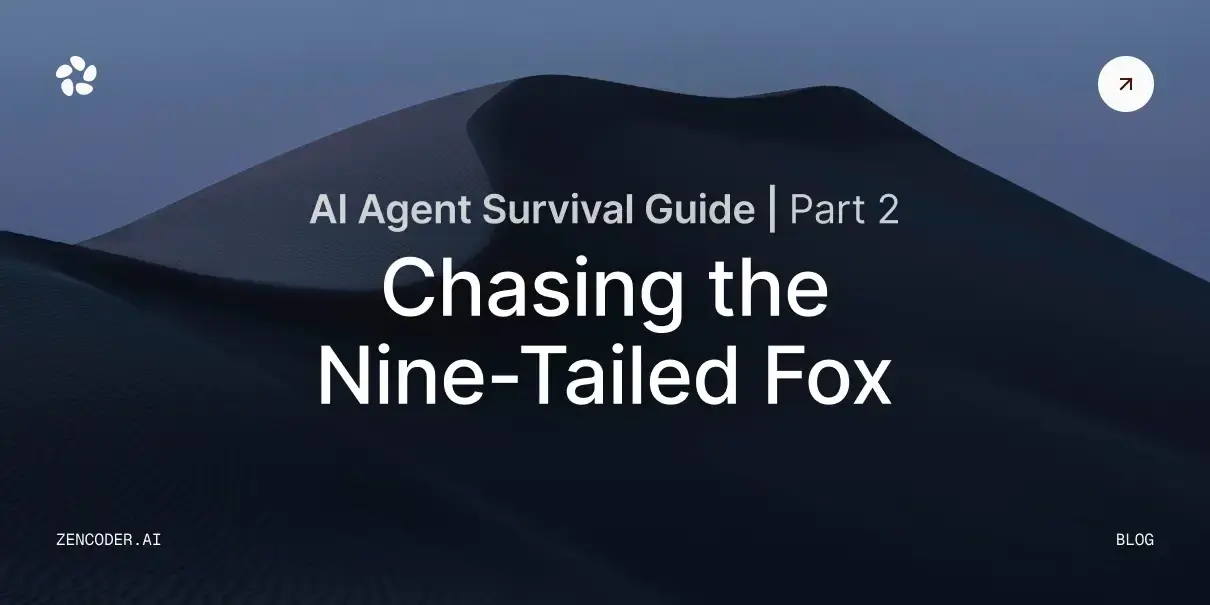AI code generators are transforming the landscape of software development by automating code creation.
However, generic AI code generators often fall short of delivering targeted solutions for specialized industry needs. Customizing AI code generators for specific domains, such as healthcare or finance, significantly enhances their utility and relevance.
In this article, we explore the growing importance of customizing AI code generators for industry-specific applications. You’ll learn:
- What AI code generators are and their role in software development.
- The limitations of generic AI code generators and why customization is essential.
- The benefits of tailoring AI code generators to meet industry-specific needs.
- Practical strategies for customization, including domain-specific training, fine-tuning, and compliance integration.
- Challenges in implementation and how to overcome them.
- The future of industry-specific AI code generators.
By the end of this article, you’ll have a comprehensive understanding of how customized AI code generators can revolutionize software development in specialized industries.
Introduction to AI Code Generators
AI code generators epitomize the future of software development, enabling developers to focus on innovation rather than repetitive coding tasks. These tools leverage advanced algorithms and vast datasets to automatically produce code snippets or complete functions with minimal human intervention. While they are not a substitute for the ingenuity or critical judgment of expert developers, AI code generators offer a promising pathway to greater efficiency and productivity.
Popular examples like GitHub Copilot and Zencoder have captured the imagination of engineers and enterprises globally. Fundamentally, these AI tools act as intelligent assistants, streamlining mundane aspects of coding. By identifying patterns and drawing from extensive libraries of knowledge, they drastically reduce the time spent on repetitive tasks, freeing developers to tackle complex challenges and drive innovation.
The efficiency brought by AI code generators is undeniable, but to fully harness their potential—especially in specialized industries—these tools require customization to align with domain-specific standards and practices. This article delves into how tailor-made AI code generation solutions can become indispensable allies in today’s dynamic technological landscape.
The Role of AI in Software Development
AI has surged to the forefront of software development, orchestrating a revolution in how code is created, optimized, and maintained. By automating laborious repetitive tasks, AI significantly enhances efficiency and accuracy within development teams.
Generative tools, including code generation capabilities and IDE customization, have become integral to modern programming languages. They simplify code completion and debugging, allowing developers more time to architect novel solutions. Moreover, AI models are increasingly sophisticated, utilizing robust learning algorithms to anticipate and resolve coding errors. This proactive approach decreases downtime and accelerates product deployment.
AI’s adaptability in assimilating new programming languages and frameworks is unprecedented, making it essential for progressive development environments. By offering insightful analytics and preempting bottlenecks, AI ensures optimal resource allocation. Ultimately, AI’s role in software development is profound, continuously evolving to meet the needs of today’s developers.
Ultimately, the role of AI in software development is profound, continuously evolving to meet the needs of today's developers. Its capacity to redefine efficiencies and enhance capabilities, particularly in natural language processing, stands as a testament to its potential to reshape industry standards.
Popular AI Code Generators
AI code generators have become indispensable tools for modern software development, with several leading platforms revolutionizing the way developers write and optimize code. Among the most popular tools are GitHub Copilot, Tabnine, and Zencoder, each offering unique features tailored to different development needs.
- GitHub Copilot: Developed in collaboration between GitHub and OpenAI, this tool leverages vast amounts of publicly available code to suggest lines or blocks of code as developers write. It integrates seamlessly into popular IDEs, providing real-time assistance and significantly reducing the time spent on repetitive coding tasks.
- Tabnine: Known for its predictive coding capabilities, Tabnine delivers a personalized experience by adapting to the user’s specific environment, coding style, and practices. It excels at providing context-aware suggestions, making it a favorite among developers seeking a more tailored coding assistant.
- Zencoder: A rising star in the field, Zencoder focuses on delivering industry-specific solutions by allowing extensive customization of its AI models. It stands out for its ability to integrate domain-specific knowledge, making it particularly valuable for industries like healthcare, finance, and manufacturing. Zencoder’s emphasis on compliance and precision ensures that its generated code aligns with stringent industry standards.
These tools have significantly impacted productivity, enabling developers to focus on solving complex problems rather than spending time on repetitive or boilerplate code. As these platforms continue to evolve, their refinement promises even greater efficiency and innovation in software development practices.
Importance of Customizing AI Code Generators
Customizing AI code generators is vital for addressing specific industry needs and overcoming the limitations of generic solutions. Generic AI code generators often lack the depth of domain-specific knowledge required to produce relevant and compliant code in specialized industries like healthcare, finance, and manufacturing.
Limitations of Generic AI Code Generators
Generic AI code generators often falter in highly specialized industries, failing to provide relevant and context-aware code. For example:
- In healthcare, generic solutions may miss nuanced requirements, causing potential compliance issues with regulations like HIPAA.
- In finance, they may fail to meet the stringent standards of SEC or PCI DSS compliance.
Benefits of Tailoring to Industry Needs
Customizing AI code generators for industry-specific applications greatly enhances their accuracy and relevance. Key benefits include:
- Improved Code Quality: Tailored generators produce code that aligns with precise industry standards.
- Enhanced Productivity: Developers save time and effort, focusing on higher-level tasks.
- Compliance-Friendly: Industry-specific customization ensures adherence to regulatory requirements.
- Increased Innovation: Facilitates breakthroughs by providing industry-specific solutions faster.
Strategies for Customizing AI Code Generators
Customizing AI code generators involves adapting these powerful tools to meet the nuanced demands of various industries. While generic tools offer initial efficiency, customization empowers these systems to align more closely with the unique needs that define different sectors, such as healthcare, finance, or manufacturing. By tailoring the algorithms and interfaces of AI code generators, one can achieve a "domain-first focus." This shift is not merely a matter of enhancing the AI’s performance. It involves a profound understanding of the sector's jargon and technicalities. As a result, the contextualization of the code elevates, allowing the generator to produce solutions that cater to the precise standards and functional requirements specific to the field.
Let’s explore some strategies to achieve this.
Understanding Industry-Specific Requirements
To customize AI code generators effectively, it’s crucial to understand the regulatory, operational, and performance needs of each sector. Each industry comes with its own set of challenges, standards, and compliance requirements, which must be reflected in the generated code. For example:
- Healthcare: AI models trained on HIPAA-compliant datasets can generate code that inherently respects patient privacy laws, ensuring that applications meet strict data protection standards.
- Finance: Models familiar with SEC regulations and financial reporting standards can seamlessly integrate into financial systems, reducing the risk of non-compliance.
- Manufacturing: AI code generators can be customized to align with industry-specific protocols, such as ISO standards, ensuring that the generated solutions are robust and reliable for industrial automation.
Understanding these requirements is the foundation for creating AI tools that deliver value beyond generic solutions.
Domain-Specific Training Needs
Domain-specific training ensures that AI models are not only technically competent but also contextually aware. This involves several key steps:
- Curating High-Quality Datasets: The quality of the training data directly impacts the performance of the AI code generator. Industry-specific datasets should be sourced from reliable, authoritative sources to ensure relevance and accuracy.
- Filtering Data for Quality and Relevance: Not all data is useful. Filtering out irrelevant or low-quality data ensures that the model focuses on learning from the most pertinent examples.
- Training on Industry Standards and Practices: Incorporating industry-specific standards, such as coding conventions, compliance requirements, and best practices, ensures that the generated code aligns with real-world expectations.
For instance, in the automotive industry, training an AI code generator on datasets that include CAN bus protocols or AUTOSAR standards can result in solutions that are ready for integration into vehicle systems.
Fine-Tuning for Industry Applications
Fine-tuning is a critical step in customizing AI code generators. This process involves refining pre-trained models by adjusting them to specific industry contexts. Fine-tuning ensures that the solutions provided meet technical requirements, adhere to industry regulations, and address unique operational challenges.
- Adapting Pre-Trained Models: Pre-trained models serve as a strong foundation, but they often lack the specificity required for niche applications. Fine-tuning bridges this gap by retraining the model on domain-specific data.
- Incorporating Feedback Loops: Continuous improvement is key. By incorporating feedback from domain experts and end-users, the AI code generator can evolve to produce increasingly accurate and relevant solutions.
- Optimizing for Performance: Fine-tuning also involves optimizing the model for performance metrics that matter most in the target industry, such as speed, accuracy, or compliance.
For example, in the energy sector, fine-tuning an AI code generator to understand grid management protocols can result in software that optimizes energy distribution while adhering to regulatory requirements.
Overcoming Implementation Challenges
Navigating the terrain of industry-specific AI code generator customization requires addressing various technical, logistical, and natural language challenges head-on. These hurdles are pivotal to ensuring that the models are both robust and efficient, ultimately enhancing their adaptability and utility across diverse sectors. By systematically tackling these barriers, we enable seamless integration with existing system architectures and foster an environment supportive of innovation.
Let’s explore some of the key challenges and strategies to overcome them.
Addressing Data Privacy Concerns
Safeguarding data privacy is one of the most critical challenges when customizing AI code generators, especially in industries like healthcare, finance, and legal services where sensitive information is abundant. Mishandling data can lead to compliance violations, reputational damage, and even legal consequences. To address these concerns, several strategies can be employed:
- Data Anonymization: Stripping identifiable information from datasets ensures that sensitive data cannot be traced back to individuals. This is particularly important in healthcare, where patient data must comply with regulations like HIPAA.
- Secure Training Environments: Implementing robust encryption methods and secure access protocols during the training process protects data from unauthorized access or breaches.
- Privacy Impact Assessments (PIAs): Conducting PIAs helps identify potential risks early in the development process. By deploying mitigation strategies proactively, organizations can ensure compliance with data protection laws such as GDPR or CCPA.
By embedding these privacy safeguards into the customization process, businesses can build trust with stakeholders while ensuring that their AI code generators remain compliant with industry regulations.
Balancing Generalization and Specialization
One of the most complex challenges in customizing AI code generators is finding the right balance between generalization and specialization. While generalization ensures that the tool can handle a wide range of tasks, specialization allows it to excel in specific domains. Striking this balance is essential for creating versatile yet highly effective solutions. Here’s how to approach it:
- Identifying Core Features: Start by defining the core functionalities that should remain general across all use cases. These might include basic syntax generation, error handling, or integration with popular frameworks.
- Defining Niche Requirements: Work closely with domain experts to identify the unique requirements of the target industry. For example, in the legal sector, this might involve generating code that adheres to specific contract templates or legal standards.
- Iterative Refinement: Regularly update and refine the model to adjust the balance as industry standards and user needs evolve. This iterative approach ensures that the AI code generator remains relevant and effective over time.
By carefully managing this balance, developers can create AI tools that are both flexible and deeply aligned with the needs of specific industries.
Managing Resource and Cost Constraints
Customizing AI code generators is a resource-intensive process that requires careful planning and strategic allocation of resources. From computational power to skilled personnel, the costs can quickly add up. However, there are several strategies to manage these constraints effectively:
- Leveraging Transfer Learning: Transfer learning allows businesses to build on existing pre-trained models rather than starting from scratch. By fine-tuning these models for specific domains, organizations can significantly reduce the computational and financial burden of training.
- Utilizing Cloud Computing Platforms: Cloud platforms provide a scalable and cost-effective solution for AI development. With on-demand computational power, businesses can align costs with actual usage rather than investing in expensive fixed infrastructure. This flexibility is particularly valuable for startups and smaller organizations with limited budgets.
- Strategic Resource Deployment: Prioritize high-impact areas for customization to maximize returns on investment. For example, focus on fine-tuning the model for critical industry-specific tasks rather than attempting to customize every aspect of the generator.
By adopting these strategies, organizations can ensure that the customization process remains financially viable while still delivering innovative and effective solutions.
Future of Industry-Specific AI Code Generators
As we look to the future, industry-specific AI code generators are poised to transform software development with unprecedented agility and precision. These tools are evolving rapidly, driven by advancements in machine learning, natural language processing, and domain-specific customization. By addressing the unique needs of various industries, AI code generators are set to redefine how software is developed, deployed, and maintained. Let’s explore the key trends shaping the future of these transformative tools.
Advancements in Fine-Tuning
Fine-tuning is at the heart of the evolution of industry-specific AI code generators. As models become more sophisticated, fine-tuning techniques are enabling them to deliver highly specialized solutions tailored to the unique requirements of different sectors. Key advancements include:
- Domain-Specific Pre-Training: Future AI code generators will increasingly rely on pre-trained models that are fine-tuned on industry-specific datasets. For example, in the legal sector, models trained on legal documents and case law can generate code that adheres to compliance standards and legal frameworks.
- Few-Shot and Zero-Shot Learning: Emerging fine-tuning techniques, such as few-shot and zero-shot learning, will allow AI code generators to adapt to new tasks with minimal additional training. This will significantly reduce the time and resources required to customize models for niche applications.
- Continuous Learning: AI code generators will incorporate mechanisms for continuous learning, enabling them to adapt to evolving industry standards and user feedback in real time. This ensures that the generated code remains relevant and effective as industries change.
These advancements in fine-tuning will amplify the effectiveness of AI code generators across domains, making them indispensable tools for software development.
Integration with DevOps Pipelines
The integration of AI code generators with DevOps pipelines is another trend that will shape the future of software development. By embedding these tools into the software development lifecycle, organizations can streamline workflows, enhance collaboration, and accelerate delivery. Key benefits of this integration include:
- Real-Time Collaboration: AI code generators integrated with DevOps tools like Jenkins, GitLab, or Azure DevOps will enable real-time collaboration between developers, testers, and operations teams. This ensures that the generated code aligns with project requirements and is ready for deployment.
- Automated Testing and Debugging: Future AI code generators will not only write code but also generate automated test cases and debug errors. This will reduce the time spent on manual testing and improve the overall quality of the software.
- Continuous Deployment: By integrating with CI/CD (Continuous Integration/Continuous Deployment) pipelines, AI code generators will enable organizations to deploy reliable software rapidly. This will enhance adaptability in a continually evolving tech ecosystem.
The seamless integration of AI code generators with DevOps pipelines will revolutionize how software is developed, making the process faster, more efficient, and highly collaborative.
Expansion into New Sectors
While AI code generators have already made significant inroads into industries like healthcare, finance, and manufacturing, their potential applications extend far beyond these domains. In the future, we can expect to see these tools being adopted in new sectors, including:
- Legal: AI code generators will assist in creating software for legal research, contract analysis, and compliance management. By understanding legal terminology and frameworks, these tools will streamline processes in the legal industry.
- Education: In the education sector, AI code generators will be used to develop personalized learning platforms, automate administrative tasks, and create tools for curriculum design. This will enhance the accessibility and effectiveness of education technology.
- Retail and E-Commerce: AI code generators will help retailers build customized e-commerce platforms, inventory management systems, and customer engagement tools. By tailoring solutions to specific business needs, these tools will drive innovation in the retail sector.
As these tools expand into new sectors, they will unlock new opportunities for innovation and efficiency, transforming industries that have traditionally been slow to adopt advanced technologies
Conclusion
Customizing AI code generators for industry-specific applications is an exciting frontier in software development.
Their potential to transform industries ensures significant benefits across sectors we touch.
By tailoring AI models to specific domains, we are unlocking a realm of possibilities that streamline processes, enhance compliance, and drive innovation forward, fostering environments where AI and human expertise collaborate seamlessly.
Ready to put these ideas into practice? Try out Zencoder and share your experience by leaving a comment below. Don’t forget to subscribe to Zencoder to stay informed about the latest AI-driven strategies for improving your code governance. Your insights, questions, and feedback can help shape the future of coding practices.
Related Reads on the Zencoder Blog:



